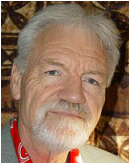
IN THE END, it was no real surprise. For 2006 coup leader Josaia Voreqe Bainimarama, who retired recently as the military strongman with the rank of rear admiral, it was a foregone conclusion that he would emerge as the triumphant victor in Fiji’s first general election in almost eight years.
Just as it was inevitable in 1992, when the original coupster - who staged two coups in the same year, 1987 - Brigadier-General Sitiveni Rabuka made the transition from military backed prime minister to civilian leader.
A major difference is that Rabuka was elected in 1992 on an indigenous supremacy platform of “Fiji for Fijians” while Bainimarama’s Fiji First party is pledged to a multiracial “Fiji for all Fijians”.
The hope is that Bainimarama’s authoritarian streak will gradually mellow and he will come to recognise as an elected leader the critical importance of a civil society discourse with a strong non-government organisation sector and an independent Fourth Estate.
The media was once a proud and feisty part of Fiji democracy. It can achieve that credible status again.
Fred Wesley, editor-in-chief of Fiji’s oldest and still most influential newspaper, The Fiji Times, founded in Levuka in 1869, said the election was not a surprise.
Commenting in an editorial about the “will of the people”, he wrote the majority of Fijians believed Bainimarama offered them hope:
'Leap into new era'
“Clearly the masses know what they want … an endorsement by the voters of Mr Bainimarama's popularity and his party's policies …," he wrote.
“We are poised to take a leap into a new era. And that in itself is good for Fiji. What we have before us is a doorway to greater things.”
There were similar sentiments in Repúblika, the magazine that has set a new benchmark for independent journalism in Fiji.
"What do the results mean for Fiji? A clear majority of the population has embraced Prime Minister Voreqe Bainimarama’s vision and ideals for Fiji, rejecting discrimination and the 'politics of the past' to give him and his party a democratic mandate after nearly eight years of military-led rule," wrote editor Ricardo Morris.
If there had been any doubt about the winner of this week’s election, it vanished almost a fortnight ago with the release of 45 captive Fijian peacekeepers seized by the rebel Syrian Islamist group al-Nusra Front on August 28 and held hostage in a southern Syrian hideout for two weeks.
The freed captives were greeted as heroes. But Bainimarama was also perceived as a hero over the behind-the-scenes negotiations.
Whatever the truth of a US$20 million ransom by the Qatari government, as claimed by some credible Israeli news media, to have them freed, the coup leader was perceived as the man of the hour.
His undoubted popularity at home, in contrast to the “hated dictator” image constantly projected for years by a handful of rabid bloggers - with the exception of Victor Lal's investigative FijiLeaks - and influential but self-interested journalists, was reflected in his huge personal mandate in the election.
Bainimarama mustered some 202,459 votes (with counting not quite complete) – more than four times the total for his chief rival, SODELPA leader Ro Teimumu Kepa (49,485), and more than 70 percent of his own party’s total. But the political machine was manipulated in his favour.
With 59.2 percent of the total vote, his Fiji First party claimed 32 seats in the new 50-seat Parliament, in contrast to SODELPA (15) and the National Federation Party (3).
Listening to the opposition
But now that he has been given the backing to govern as the elected leader, he now needs to share power with a democratic Parliament. And this means listening to the opposition and the voice of the people, civil society and the media.
Source: http://cafepacific.blogspot.co.nz/2014/09/a-fiji-democratic-mandate-for-coup.html
Call for repeal of Fiji's Media Decree
Reporters without Borders and the New Zealand-based Pacific Media Centre have called for Fiji to repeal its Media Decree and introduce a Freedom of Information law.
A joint submission from both organisations will be made to the United Nations Human Rights Council when it monitors Fiji at its regular universal periodic review in Geneva next month (Fijileaks Editor: October).
Reporters Without Borders' Asia-Pacific director Benjamin Ismail says it was regrettable that the media decree had resulted in a 48 hour blackout on media coverage of last week's elections. He says press freedom in an electoral period and during the elections has been under attack, and more media coverage and press freedom could have decreased the risk of fraud.
The Pacific Media Centre's Director, Professor David Robie, told Bruce Hill that the media decree is inappropriate in a country which has returned to democracy.
Presenter: Bruce Hill
Speaker: Professor David Robie, Director of the Pacific Media Centre in Auckland
Listen here:
http://www.radioaustralia.net.au/international/radio/program/pacific-beat/call-for-repeal-of-fijis-media-decree/1371497

